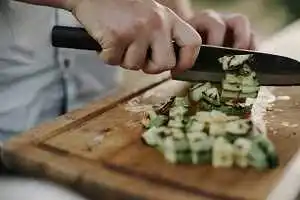By Reetika Wadhwa and Nishtha Das
With unprecedented threat from the COVID-19 pandemic caused onto the population worldwide, stringent measures have been adopted globally to curb the rapid spread of the viral including measures such as lockdown encouraging social distancing along with the adoption of hygienic practices as well as recourse to masks, gloves and frequent sanitization of hands through soap and water or alcohol based hand rubs. While restrictions have proved to be beneficial in controlling the exponential increase in the number of cases, it has also brought to halt several businesses and hampered sources of livelihood for many, as the focus of the public is more on procurement of essential goods and services such as medicinal and food products. In such a situation, businesses and industries engaged in manufacture and sale of non-essential goods services have underwent a major setback.
Food has been an indispensable requirement for human life and caters ample opportunity to those engaged in commercializing the same. Although outings and meetings over meals have become a distant dream for the major population segment at the moment, food businesses are still being operated serving those in need. The Union Ministry of Home Affairs vide its new guidelines to fight COVID-19 issued on May 30, 2019 has allowed for phased re-opening of areas outside the Containment Zones permitting hotels, restaurants and other hospitality services to resume business and accordingly several hotels and restaurants have resumed operations from June 8, 2020.[1]
FSSAI Guidelines for Food Business Owners during COVID-19
Amidst these tough times, it has become very critical and important that adequate safety norms are adopted. In view of exponential fear of spread of the virus, the regulator of food business in India i.e. Food Safety and Standards Authority (hereinafter referred to as the “FSSAI”) under the provisions of the Food Safety Standards Act, 2006 (hereinafter referred to as the “FSSAI Act”) has issued Food Hygiene and Safety Guidelines for businesses during Coronavirus Disease (COVID-19) Pandemic. The guidelines inter alia advise on aspects like responsibility of Food Business owner/manager, personal hygiene of food handlers, cleaning and sanitation, instructions for food delivery/service/takeovers as well as the recommended protocols when a visitor/ employee/customer tests COVID-19 positive. Some of the key norms and guidelines issued by the FSSAI in this regard are listed as under[2]:
- Screening of all visitors/ employees/ workers at entry point for symptoms of cold, cough, fever, fatigue, breathing difficulties, etc.
- Submission of self-declaration and regular monitoring regarding the health status of visitors/ food handlers/ visitors.
- Preparation of protocols/ guidelines to handle COVID-19 cases including availability of disinfectants, masks, gloves, isolation rooms, listing of local authorized hospitals, etc.
- Ensuring highest personal hygiene standards to be adhered by the food handlers including frequent hand wash with soap and water, use of alcohol based hand sanitizers, good respiratory hygiene practices to cover mouth and nose properly by use of face mask, use of gloves while handling food, avoiding close contact with persons having symptoms of respiratory illness, cleaning/ disinfection of work surfaces, reporting illness, practicing social distancing by spacing out/ staggering work stations, maintenance of 1 meter gap between co-workers, etc.
- Frequent cleaning and sanitation of area where food products are prepared/ packaged, waste disposal area, transport vehicles, service areas, etc.; utensils, equipment, cutlery; high touch points like doorknobs, public counters, handrails, etc.
- Steps for cleaning to include rinsing with warm portable water, washing with hot water (60 degrees ) followed by rinsing, treating with hot (75 degrees), clean and portable water, air-drying and disinfection using common disinfectants.
- Ascertaining that ready to eat food items are not left unattended or open
- Employees should wear clean uniform mask/ face covers, gloves, headcovers at all times.
- All food items are to be thoroughly washed in 50ppm chlorine and clean potable water before storage.
- Minimum 1 meter distance is to be maintained by food handlers and consumers including those engaged in buffet system, food delivery, food transportation such as drivers, loaders, etc., food retail premises, food packaging, etc.
FSSAI- Do’s and Don’ts by Chefs and Food Handlers amid COVID-19
WHO Safety and Advisory- Tips and Tricks for restaurants to operate during COVID-19
Complying with the aforesaid guidelines may prove beneficial for those in the food business to continue carrying out their regular operations while not compromising with the health and safety of their consumers even during the testing times which have cropped up due to the viral outbreak. Insomuch so as the circumstances remain unclear pertaining to the continuation of the critical situation, food industry can still find its way through to continue revenue generation considering the fact that it acquires an indispensable role in our day to day lives.
Also read Delhi HC’s recent move on CCTV installation in restaurants; an emerging privacy issue
[1] https://pib.gov.in/PressReleasePage.aspx?PRID=1627965
[2] https://fssai.gov.in/upload/uploadfiles/files/Guidance_Note_COVID_15_04_2020.pdf


